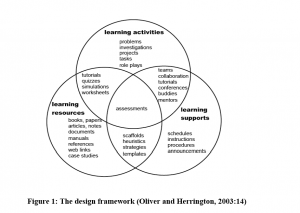Why Blog?
"...we can fulfill the idea that the classroom is a meeting place
for the exchange and evolution of ideas."
Stewart Mader
The Benefits
At parent-teacher-student conferences, families like to know not only how their child is doing, but also if they are learning things of interest and value to them in ways that reflect each child's personality and talents. It's always reassuring to hear a child explain the projects they really enjoyed, and to note the learning the student sometimes didn't even realize had occurred. In the retelling, the learning overflowed.
How does school help students develop their talents? their interests? their curiosity? their community? How does a wiki, blog, or Google Apps for Education welcome students to learning?
Teaching and learning are social activities; today's kids are connected in ways that no adult over twenty-five could have imagined just five years ago. Students today enjoy the connectedness of social networking; it is part of their very being. My goal is to bring my instruction into that cloud to teach the content required in ways that inspire online responsibility and ethics in this new, very public world. To that end, Parker and Chao summarize the research on the benefits of using a wiki [and Google Apps] in the classroom, many of which also apply to blogging (bold):
- wikis stimulate writing ('fun' and 'wiki' are often associated);
- wikis provide a low-cost but effective communication and collaboration tool (with an emphasis on text rather than software);
- wikis promote the close reading, revision, and tracking of preliminary work;
- wikis discourage 'product oriented writing' while facilitating 'writing as a process'; and wikis ease students into writing for a wider audience;
- summarize various assigned readings and post them on the wiki for others to edit collaboratively to improve both accuracy and completeness;
- allow students to meet virtually at their convenience and work on projects together;
- gather, organize, and share writing, photos, videos, presentations,and other digital creations;
- enable extremely rich, flexible collaborations that have positive psychological consequences for their participants;
- prepare students to make innovative uses of collaborative software tools;
- manage business innovations of the future
The collaborative and public nature of such work helps students understand and collaborate in a continuous publishing process in which their strengths and talents add to the research and product.
Instructional Design
I've always believed that I learn from my students, and that I need to know them and what they need in order to teach well. I also believe that learning is a social activity, and that we learn by participating. In addition, I know that all kids can learn, and that they are "smart" in different ways. Finally, a student can learn if s/he can see a target, has various supporting structures and resources, and has the opportunity and time to practice and improve with continuous feedback. Google Apps, blogs, and wikis provide the structure for all of those pedagogical implications:
- Learning activities engage students in projects/products that benefit or inform others in real situations with options for students that promote their interests and strengths.
- Learning resources involve in-hand, multi-media, primary, or "live" venues from which students can learn both the information and the process of gathering, analyzing, and synthesizing the learned concepts.
- Learning supports provide the feedback and structure for students to succeed, according to their needs.
This diagram pulls all these ideas together to show what a classroom emphasizing such activities with technological tools of Google Apps, blogs, and wikis can include:
Peter Jones (1,2)
Students can choose different kinds or different levels of learning activities, all of which offer the opportunity to learn the requirements of the lesson with the additional benefit of peer/teacher collaboration and feedback so that the final product meets the expected standard. With blogs, students peer edit before approval. A Google Document, wiki, or blog allow links and lists of possible learning resources (to which students can add) with the benefit of availability 24/7 if online.
Learning supports improve from the collaboration and feedback by/with students; the feedback guides the teacher into providing additional shared instructions, handouts, templates, strategies, organizers, and resources as needed for students to succeed. Everything is visible and transparent, supportive of all students and styles. It builds the conversation and the community through a 21st Century communication connection.
Learning supports improve from the collaboration and feedback by/with students; the feedback guides the teacher into providing additional shared instructions, handouts, templates, strategies, organizers, and resources as needed for students to succeed. Everything is visible and transparent, supportive of all students and styles. It builds the conversation and the community through a 21st Century communication connection.
- When a wiki is the way: Exploring the use of a wiki in a constructively aligned learning design Peter Jones, Department of Social Work and Community Welfare, James Cook University
- Download document (pdf): http://www.ascilite.org.au/conferences/singapore07/procs/jones-p.pdf

No comments:
Post a Comment
Please add your comment with respect of others' ideas. Thank you.